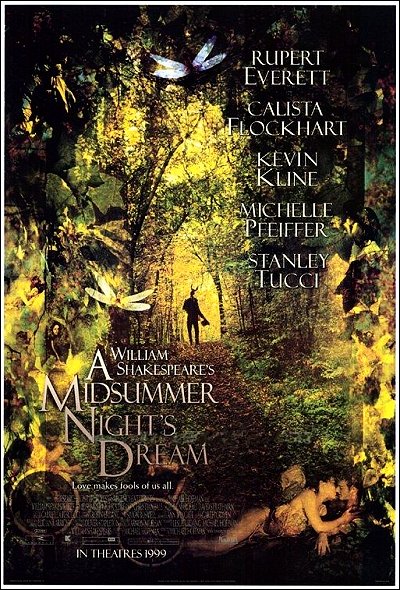William Shakespeare: Five Sonnets

William Shakespeare
(1564-1616)
F i v e S o n n e t s
20
A woman’s face with nature’s own hand painted,
Hast thou the master mistress of my passion,
A woman’s gentle heart but not acquainted
With shifting change as is false women’s fashion,
An eye more bright than theirs, less false in rolling:
Gilding the object whereupon it gazeth,
A man in hue all hues in his controlling,
Which steals men’s eyes and women’s souls amazeth.
And for a woman wert thou first created,
Till nature as she wrought thee fell a-doting,
And by addition me of thee defeated,
By adding one thing to my purpose nothing.
But since she pricked thee out for women’s pleasure,
Mine be thy love and thy love’s use their treasure.

31
Thy bosom is endeared with all hearts,
Which I by lacking have supposed dead,
And there reigns love and all love’s loving parts,
And all those friends which I thought buried.
How many a holy and obsequious tear
Hath dear religious love stol’n from mine eye,
As interest of the dead, which now appear,
But things removed that hidden in thee lie.
Thou art the grave where buried love doth live,
Hung with the trophies of my lovers gone,
Who all their parts of me to thee did give,
That due of many, now is thine alone.
Their images I loved, I view in thee,
And thou (all they) hast all the all of me.

36
Let me confess that we two must be twain,
Although our undivided loves are one:
So shall those blots that do with me remain,
Without thy help, by me be borne alone.
In our two loves there is but one respect,
Though in our lives a separable spite,
Which though it alter not love’s sole effect,
Yet doth it steal sweet hours from love’s delight.
I may not evermore acknowledge thee,
Lest my bewailed guilt should do thee shame,
Nor thou with public kindness honour me,
Unless thou take that honour from thy name:
But do not so, I love thee in such sort,
As thou being mine, mine is thy good report.

40
Take all my loves, my love, yea take them all,
What hast thou then more than thou hadst before?
No love, my love, that thou mayst true love call,
All mine was thine, before thou hadst this more:
Then if for my love, thou my love receivest,
I cannot blame thee, for my love thou usest,
But yet be blamed, if thou thy self deceivest
By wilful taste of what thy self refusest.
I do forgive thy robbery gentle thief
Although thou steal thee all my poverty:
And yet love knows it is a greater grief
To bear love’s wrong, than hate’s known injury.
Lascivious grace, in whom all ill well shows,
Kill me with spites yet we must not be foes.

46
Mine eye and heart are at a mortal war,
How to divide the conquest of thy sight,
Mine eye, my heart thy picture’s sight would bar,
My heart, mine eye the freedom of that right,
My heart doth plead that thou in him dost lie,
(A closet never pierced with crystal eyes)
But the defendant doth that plea deny,
And says in him thy fair appearance lies.
To side this title is impanelled
A quest of thoughts, all tenants to the heart,
And by their verdict is determined
The clear eye’s moiety, and the dear heart’s part.
As thus, mine eye’s due is thy outward part,
And my heart’s right, thy inward love of heart.

kemp=mag poetry magazine
More in: Shakespeare, William

